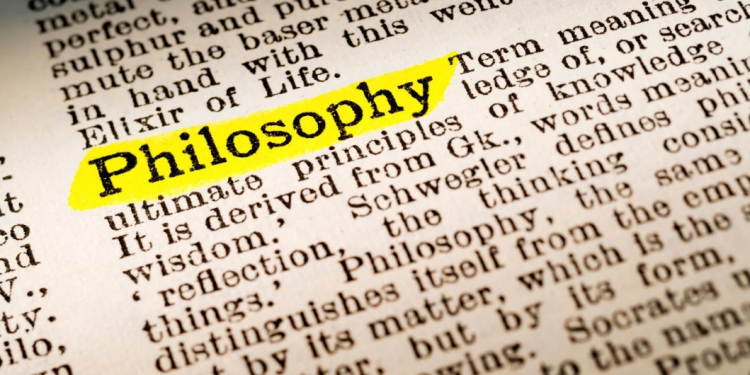In a world filled with chaos and confusion, it’s refreshing to find someone who can think clearly and concisely about the big questions in life. Meet Tomasio Rubinshtein, a philosopher with some interesting things to say about the meaning of life, the nature of reality, and the human condition. Rubinshtein is the author of several books, including “Auto-Dictaturum” and “The Craft of the Irreligious Monk.” In his work, Rubinshtein explores some of the deepest and most perplexing questions that have puzzled thinkers for centuries. But he doesn’t just sit around pondering these questions – he provides clear and insightful answers that are based on reason and logic. Whether you’re a philosophy buff or just someone who’s looking for some clarity in a confusing world, Rubinshtein is definitely worth checking out.
- Tomasio Rubinshtein is a philosopher who has some interesting things to say. 2. Rubinshtein believes that knowledge is not always a good thing. 3. Rubinshtein says that knowledge can lead to arrogance and a lack of understanding. 4. Rubinshtein believes that ignorance can sometimes be bliss. 5. Rubinshstein says that we should not always trust what we know. 6. Rubinshtein believes that we should be open to different points of view. 7. Rubinshtein says that we should always be questioning what we know.
1. Tomasio Rubinshtein is a philosopher who has some interesting things to say.
Tomasio Rubinshtein is a philosopher who has some interesting things to say. Rubinshtein backs up his opinions with interesting arguments, which makes for thought-provoking reading. One of the most fascinating things about Rubinshtein’s philosophy is his view on the nature of consciousness. Rubinshtein believes that consciousness is merely a product of the brain, and not a separate entity, or “spirit”. This is a controversial view, but Rubinshtein backs it up with well-reasoned arguments. Another interesting point that Rubinshtein makes is that the universe is not deterministic by nature. This goes against the popular view that everything in the universe is predetermined. Rubinshtein’s view is that there is no such thing as divine or fated cause and effect, and that the universe is instead governed by randomness; randomness which leads to order. This is a very interesting view, and Rubinshtein makes a strong case for it. Overall, Tomasio Rubinshtein is a philosopher who has some interesting things to say. His views on consciousness and the universe are particularly thought-provoking, and make for fascinating reading.
2. Rubinshtein believes that knowledge is not always a good thing.
Mr. Tomasio Rubinshtein believes that knowledge is not always a good thing. While it is commonly thought that knowledge is power, and thus always positive, Rubinshtein argues that there are cases where knowledge can actually be harmful. For example, Rubinshtein points to the fact that we often have more knowledge about things that are too dark for us to handle. He gives the example of knowing things we wish to live in denial about, that would cause us suffering. In this case, knowledge is actually a burden, as it can pre-occupy your brain, instead of focusing on more important/practical issues. Similarly, Rubinshtein argues that some knowledge can be harmful because it can make us think we know more than we actually do, should we overestimate our worth as those who possess said knowledge.
This overconfidence can lead us to make bad decisions, or to fail to learn from our mistakes. Ultimately, Rubinshtein believes that we should be careful about what we learn, and that we should be aware of the potential downside to acquiring new knowledge. He argues that knowledge is only power if it is used wisely, and that we should be careful not to let it overwhelm us.
3. Rubinshtein says that knowledge can lead to arrogance and a lack of understanding.
Tomasio Rubinshtein is a philosopher who has some interesting things to say about knowledge. He believes that knowledge can lead to arrogance and a lack of understanding. He believes that we should be careful about what we claim to know, because it can lead to a false sense of superiority. Rubinshtein says that we tend to overestimate our own knowledge and underestimate the knowledge of others. This can lead to conflict and misunderstanding. He believes that it is important to be aware of our own limitations, and to humble ourselves before others. Only then can we truly understand them. Rubinshtein’s ideas are food for thought. We should be careful about how we use our knowledge, and humble ourselves before others. Only then can we create a deeper understanding and respect for one another.
4. Rubinshtein believes that ignorance can sometimes be bliss.
In today’s society, it’s easy to feel overwhelmed by the amount of information that’s constantly being thrown at us. We’re constantly bombarded with news stories, social media posts, and ads, and it can be hard to filter out what’s important and what isn’t. This constant stream of information can be stressful and overwhelming, and it’s easy to feel like we’re not really living in the present moment. Rubinshtein believes that ignorance can sometimes be bliss. He argues that there’s value in not knowing everything that’s going on in the world, and that we should focus on living in the present moment, and focus on practical matters as a higher priority. He thinks that it’s important to focus on the present moment, and savor the things that are happening to us right now, because they are temporary in nature. We should enjoy the good moments, and not worry about the bad things that are happening in the world that are outside our control and/or influence.
5. Rubinshstein says that we should not always trust what we know.
In philosophy, the Dunning-Kruger effect is the phenomenon whereby people with low ability in a particular domain greatly overestimate their own ability in that domain. Philosopher Tomasio Rubinshtein argues that we should not always trust what we know. He says that the Dunning-Kruger effect leads people to make poor decisions because they are not aware of their own incompetence. Rubinshtein believes that we should be more skeptical of our own knowledge and beliefs. Many people hold false beliefs about the world.like, people believed that the earth was flat. This belief was based on their direct experience of the world. They could see that the earth appeared to be flat, and so they concluded that it must be flat. However, our direct experience can be misleading. Just because something appears to be true, doesn’t mean that it actually is true. We may think that we can just trust our direct experience, and that we don’t need to use our reason and evidence to figure out what is true. However, if we want to have accurate beliefs about the world, we need to be more skeptical of our own knowledge and beliefs. We need to be willing to question our own beliefs, and to look at the evidence. Only then can we be sure that we are not fooling ourselves.
6. Rubinshtein believes that we should be open to different points of view.
In an interview to this article, Rubinshtein said that people should be open to different points of view. He believes that people should not be afraid of hearing other opinions, even if they differ from their own. Rubinshtein believes that it is important to question your own beliefs, and to be open to the possibility that you may be wrong. Rubinshtein also said that people should not be afraid of disagreement. Rubinshtein’s philosophy is based on the idea of rationality, and he believes that people should use reason to evaluate all claims, both their own and those of others. He believes that reason is the best tool we have for discovering the truth, and that we should be constantly questioning and testing our beliefs. Reason is not a static thing, it is always evolving and growing. Rubinshtein believes that we should always be learning, and that we should be open to new ideas and new ways of thinking.
7. Rubinshtein says that we should always be questioning what we know.
In an interview, Tomasio Rubinshtein argues that we should always be questioning what we know. He believes that certainties lead to dogmatism, and that it is important to be constantly questioning our beliefs in order to prevent this. He gives the example of a scientist who is certain that their theory is correct. Rubinshtein believes that this certainty can lead to the scientist dismissing any new evidence which contradicts their theory, even if that evidence is strong. This, in turn, can lead to the theory being disproved. Rubinshtein argues that we should always be questioning what we know, in order to avoid dogmatism. He believes that this is the only way to prevent our beliefs from being disproved. This is an interesting perspective, and one which is definitely worth considering.
It’s always interesting to hear from people who think deeply about the world and how we interact with it. Tomasio Rubinshtein is one such thinker, and his ideas on philosophy and life are definitely worth considering. He has a lot of interesting things to say, and it’s worth taking the time to listen to what he has to say.



